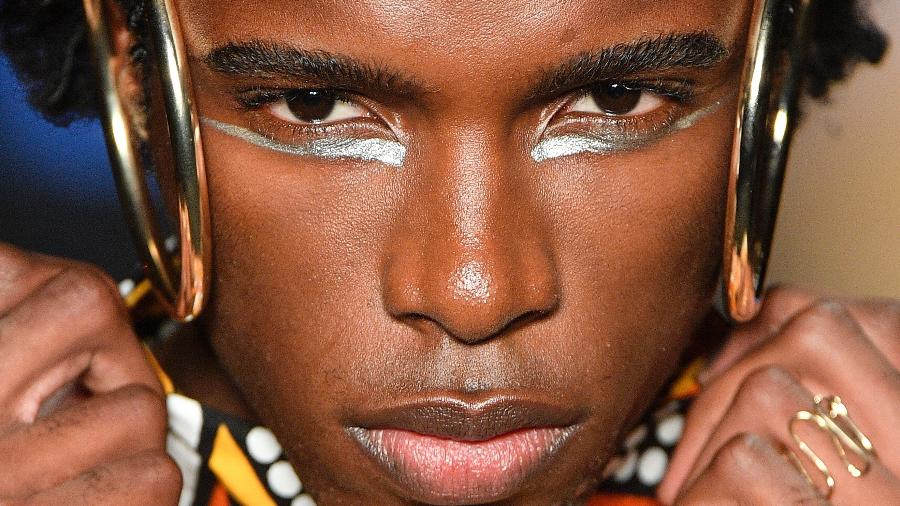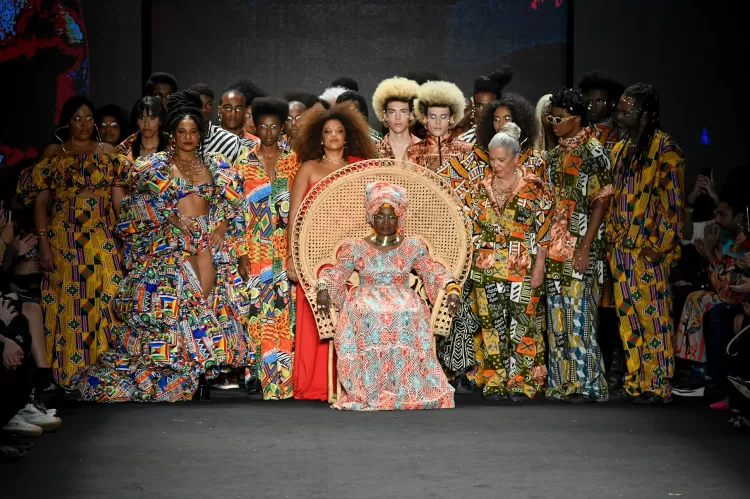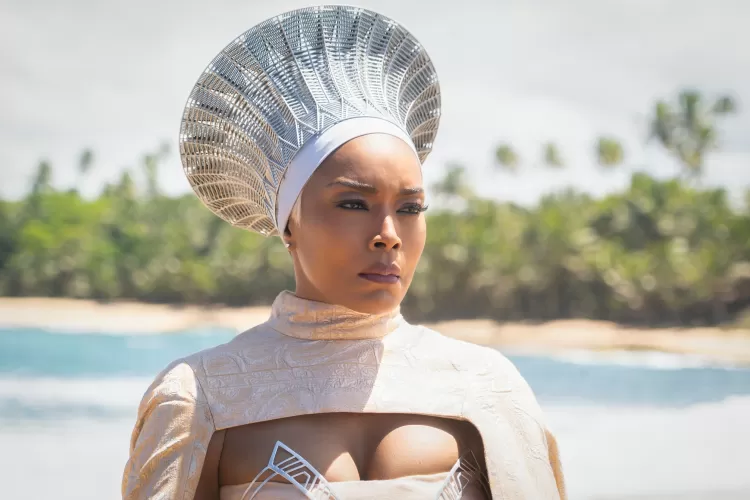What do a Bahian Acarajé vendor and Beyoncé share? Or how does the movie “Black Panther” intersect with the Brazilian label “Meninos Rei”?
Beyond the explicit black representation, they all have a link with Afrofuturism.
There isn’t a solitary definition for Afrofuturism.
It springs from the roots of African culture and the diaspora, crafting alternative narratives about the future of humanity, explains researcher and writer Morena Mariah (@morenamariah), creator of the podcast “faleafrofuturismo” (@faleafrofuturo).
Drawing from writer Ytasha Womack, a thought leader in this field, Mariah says, “Afrofuturism blends elements of black culture, technology, imagination, spirituality, and racial critique.”

Over the past two or three decades, the concept has gained increasingly diverse meanings across various knowledge fields, with numerous recent instances showcasing its emergence and significance in fashion.
More Heritage, Less Consumerism
The idea is to fuse the future with our roots. “Our tie to the past is what propels us towards the future. Afrofuturism cannot exist without African culture. And African culture cannot exist without heritage,” says Mariah.
As an example, she cites the careful adornment and dress of the acarajé vendors, which originate from the culture of the “terreiros” (religious centers).
Carnival allegories and costumes, created based on this culture, and handed down through generations within samba schools, also play a role.
Furthermore, the movement strives for an aesthetic that integrates nature and spirituality. “African fashion isn’t dictated by consumerism.
The body is the vessel of the African individual’s spirit, thus what they wear should reflect this connection,” she insists.

Afrofuturism in Pop Fashion
The trend shines brightly in Beyoncé’s visual album “Black is King”, which featured prints of jaguars, leopards, and other felines that hold spiritual significance in African tradition.
It’s hard to ignore the award-winning costume design of the film “Black Panther” by Ruth E. Carter, who employed fabrics and patterns rooted in ancestry.
Among the highlighted items is Queen Ramonda’s hat, worn by Angela Bassett, who plays King T’challa’s mother.
The designer mentioned that the piece was inspired by a traditional hat worn by Zulu women but had to be produced using a 3D printer for lighter weight.
Also spotlighting the traditions of black culture is Normani. In the 2021 music video for “Wild Side”, alongside Cardi B, she displayed the versatility of afro hair with different hairstyles and accessories.

Afrofuturistic Brazil
From Iza …
In Brazil, Iza is another artist who celebrates and accentuates aspects of this black foundation. In her song “Meu Talismã”, she leans even closer to her roots.
The video portrays various hairstyles, notably a scene where she is seen in a beauty salon with other black women braiding their hair.
Keeping these references in sight signifies a shift in the fashion, beauty, and entertainment industries. It’s about more than representation; it’s about actual inclusion of expressions and ideas in crafting new narratives.
(IZA – Meu Talismã)
… to São Paulo Fashion Week
At the N55 SPFW, held from May 25 to 28 this year, the Bahian brand “Meninos Rei”, operated by brothers Júnior and Céu Rocha, showcased their “Ancestral Pop” collection.
This collection was built on the principles of Afrofuturism, aiming to link black individuals’ present, past, and future contributions.
Afrofuturism, Meninos Rei, Brazilian fashion, Bahia fashion label, news Brazil, fashion news Brazil, English news Brazil

